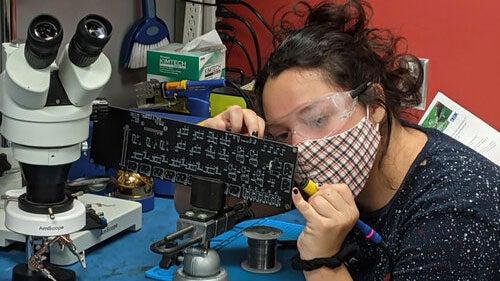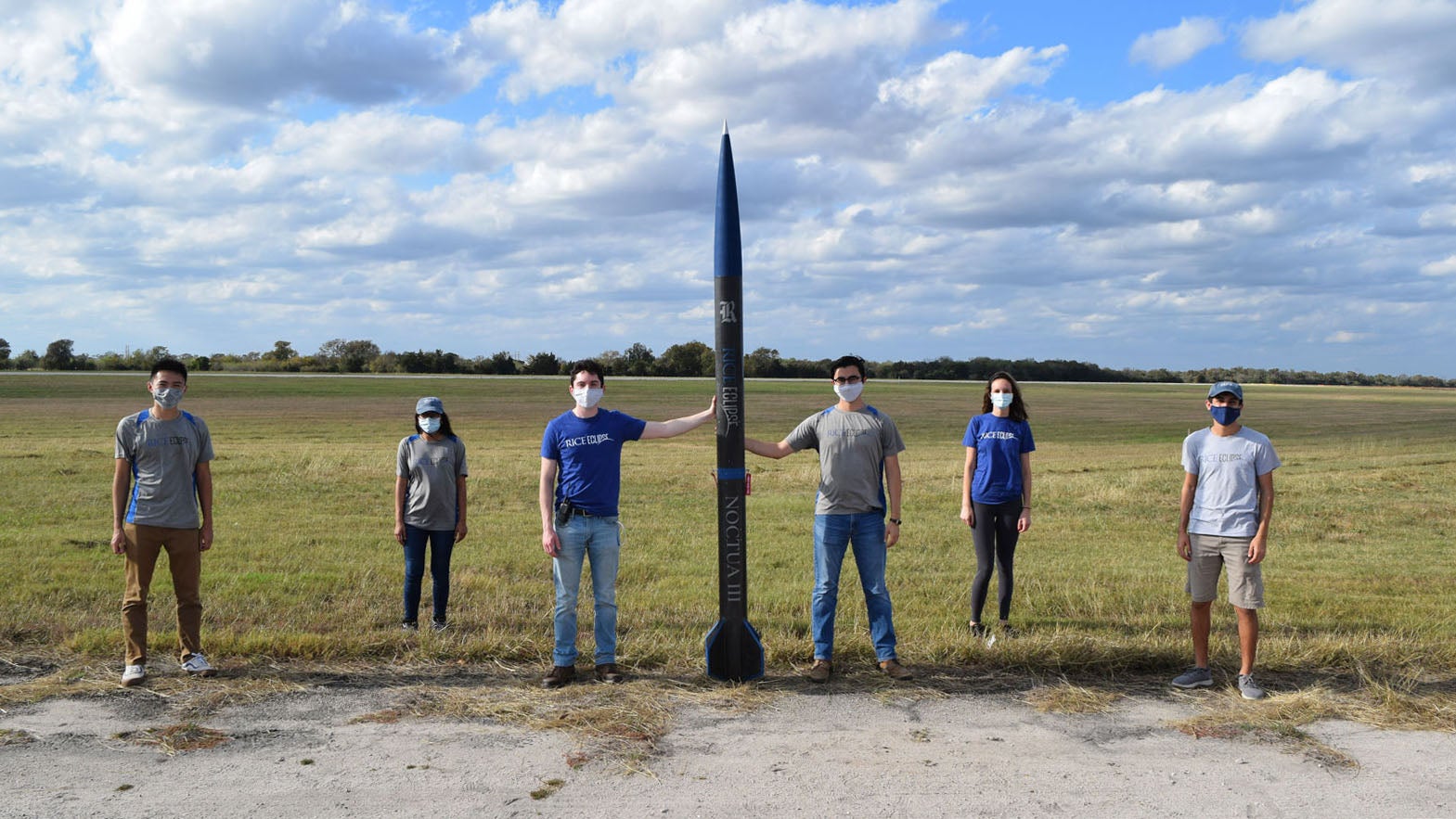The Rice Eclipse Rocketry Team has been awarded a $1,000 grant from the Department of Electrical and Computer Engineering. The grant was presented to team members by Ashutosh Sabharwal, chair of electrical and computer engineering (ECE) at Rice University. The funds will be used to develop an actively guided parachute recovery system for Eclipse's rockets and ARCA, Eclipse's ground system control software for engine tests.
The ARCA software's main purpose is to send commands that start the engine, controls valves, and regulate the heating tape on the engine oxidizer tank. The software also collects data from different sensors to determine if the test parameters are within allowable limits.

"You put ARCA in the payload of a rocket, and as the rocket launches and then descends, it's collecting continuous data on altitude, temperature, and acceleration, which allows us to get data that helps us improve the rocket designs," said Clayton Ramsey, member of the Rice Eclipse Rocketry Team.
The organization also hopes to refine an actively guided parachute recovery system that will aid in landing the multiple pieces of the rocket in locations that make it easier to retrieve. A task that has proven to be challenging in the New Mexico launch site.
The Rice Eclipse team is a student organization at Rice University that builds and launches rockets. The team is composed of students from multiple fields of study across campus, including multiple electrical and computer engineering students. The club was founded in 2014 and has grown to have over 70 active members. The organization aims to enhance the education of its members with project-based learning in the subject of aerospace technologies.
The team develops launch vehicles, rocket engines, avionics hardware, and avionics software to compete in the annual Spaceport America Cup intercollegiate rocketry competition. The competition challenges teams to design, build, and launch a rocket whose performance exceeds predetermined requirements.
"Rice Eclipse is, in my opinion, one of the best ways to get hands-on experience in the field and apply what you learn in class. In the classroom, you learn a lot of theory, but you do little testing and debugging, so you come out with an idealized view of how all these things work. In the Eclipse team, everything you do matters, and what you learn is critical to your success," says Ramsey.

